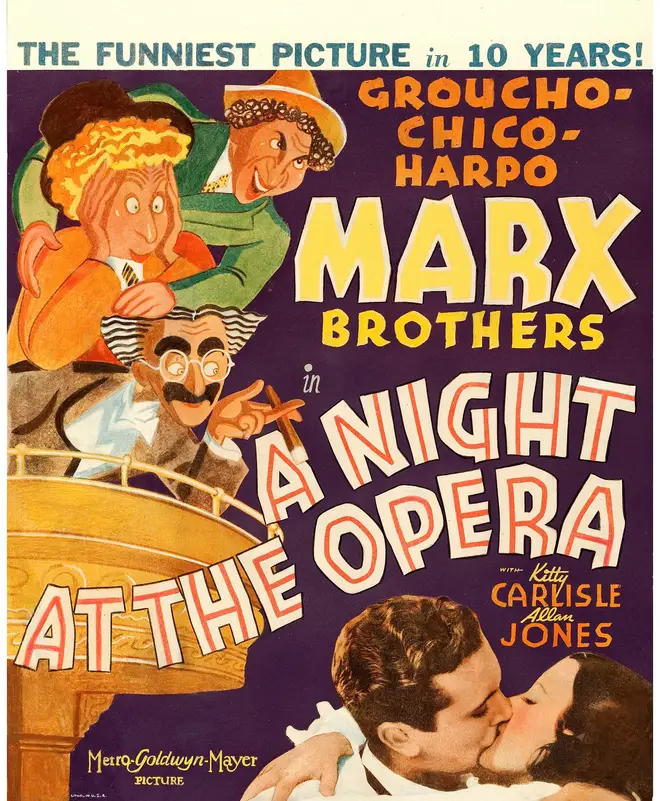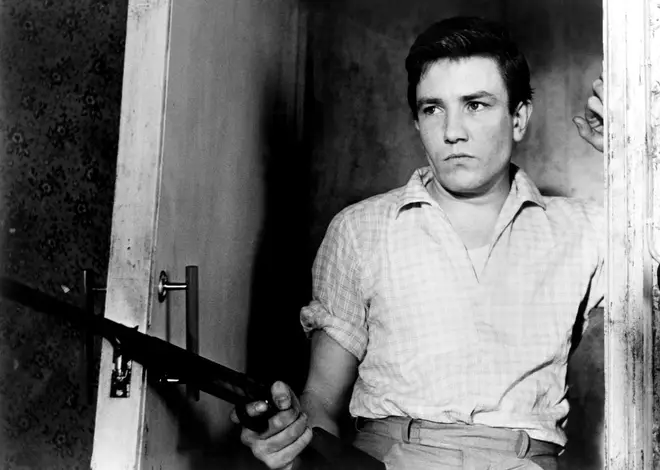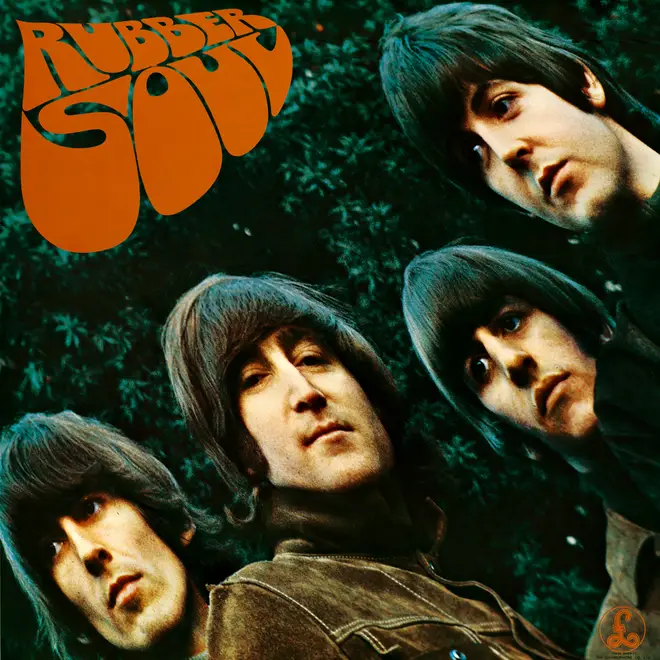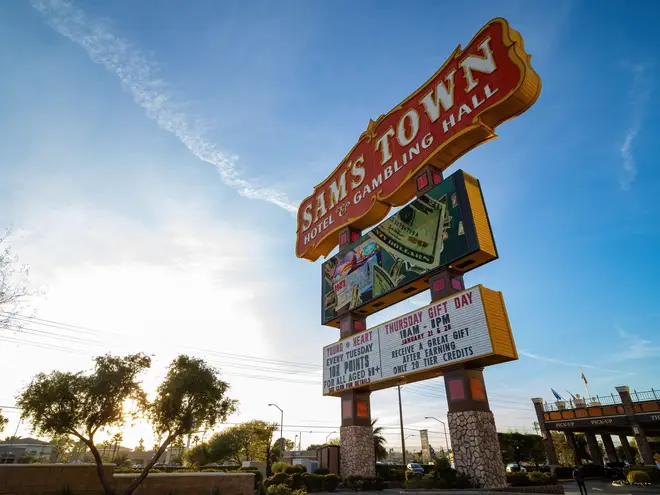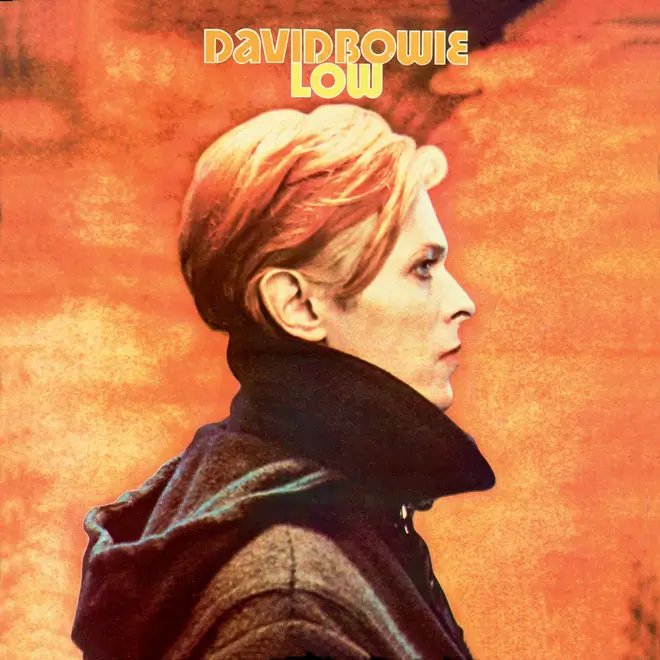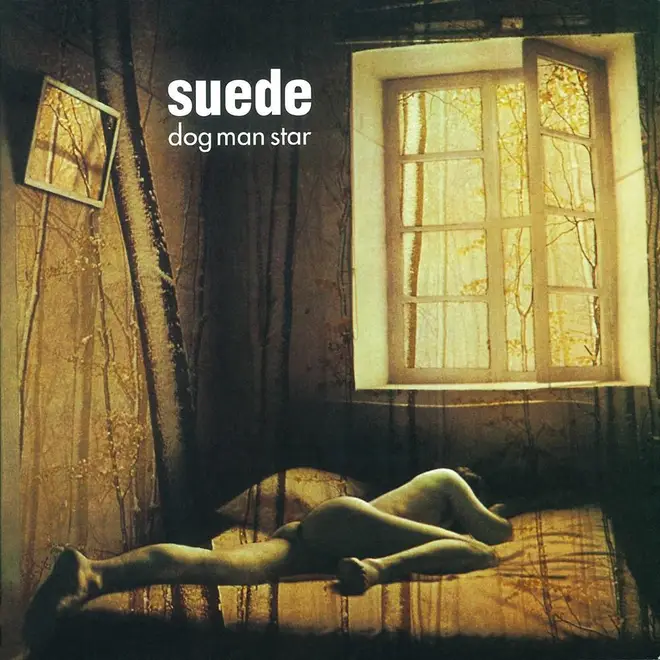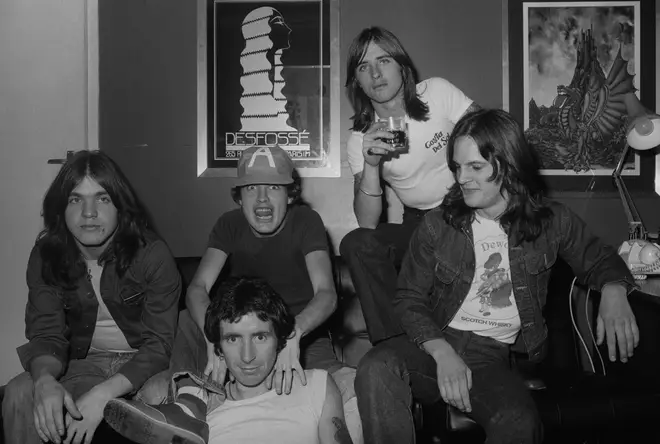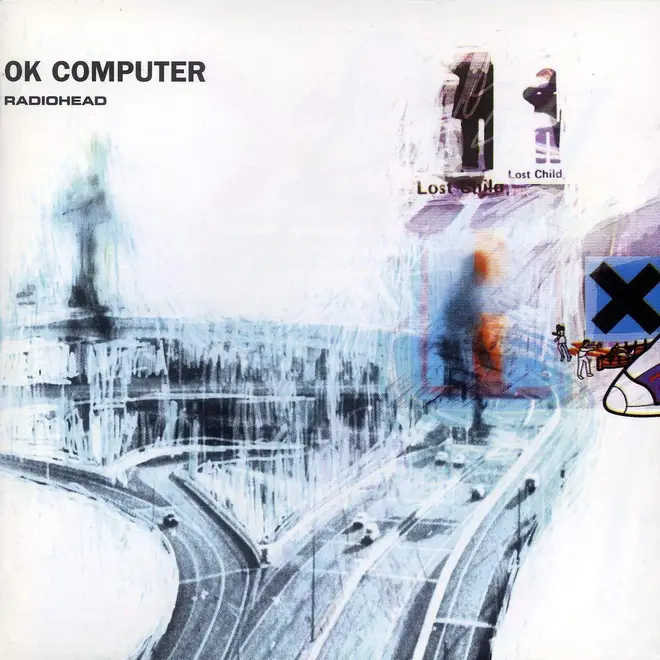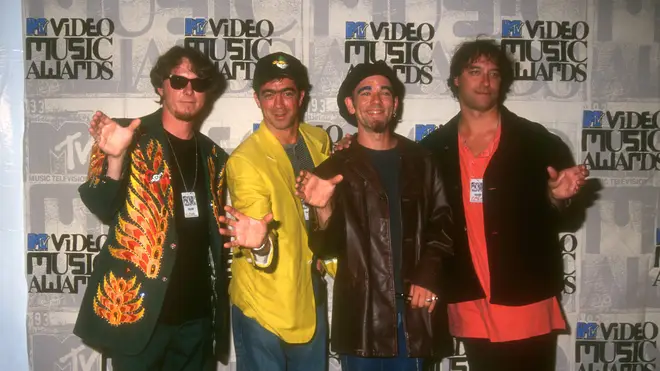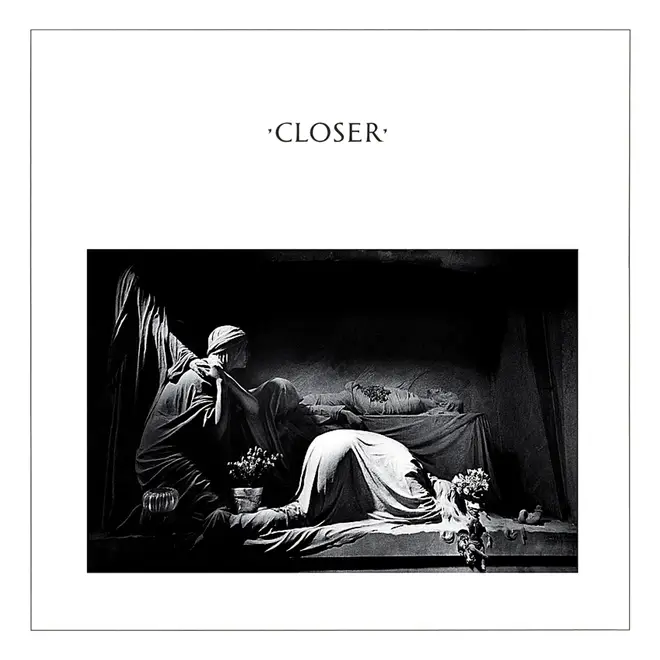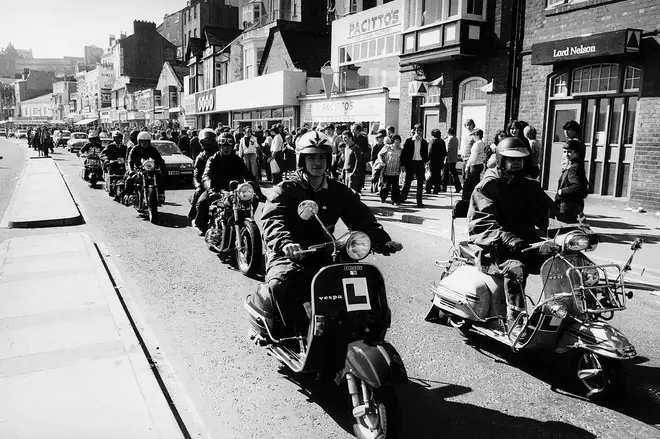What’s the meaning behind these classic album titles?
3 December 2024, 13:00

Album titles - they’re a load of old nonsense thought up on the spur of the moment aren’t they? Not always. Some titles have a deep significance.
Listen to this article
-
Queen - A Night At The Opera
According to Brian May, the title of Queen’s fourth studio album was inspired by recording Freddie Mercury’s operatic interlude on Bohemian Rhapsody, and then switching on the TV in the residential studio they were recording in and seeing The Marx Brothers’ classic 1935 comedy A Night At The Opera. As Brian says, the penny dropped and it seemed the obvious thing to call the new LP. When Queen finished their follow-up, A Day At The Races, it was immediately titled after the brothers’ 1937 movie.
The Marx Brothers in A Night At The Opera. Picture: PictureLux / The Hollywood Archive / Alamy Stock Photo -
The Smiths - Strangeways, Here We Come
There must be Smiths fans out there in the world that don’t know that Strangeways is the commonly used name for Her Majesty’s Prison on Southall Street, Manchester M60. The jail was built on the grounds of Strangeways Park in 1868 and by 1980 was a destination for remand prisoners. After the controversy over The Smiths’ previous album title, The Queen Is Dead, Morrissey considered that he would ultimately end up behind bars for treason.
Strangeways prison in Manchester. Picture: brinkstock / Alamy Stock Photo -
Arctic Monkeys - Whatever People Say I Am, That’s What I’m Not
The classic debut takes its title from Alan Sillitoe’s 1958 novel Saturday Night And Sunday Morning. An example of the “angry young man” work of the era, the story features 21-year-old anti-hero Arthur Seaton and an evening in the pub that rapidly unravels thanks to his shenanigans with two married women. The themes of impetuous youth are similar to Alex Turner’s lyrics as Arthur (plyaed by Albert Finney) cries: “Whatever people say I am, that's what I'm not because they don't know a bloody thing about me! God knows what I am.”
Albert Finney in Saturday Night, Sunday Morning. Picture: Everett Collection Inc / Alamy Stock Photo -
Oasis - Be Here Now
Noel Gallagher is a huge Beatles fan, so it’s likely he picked up the title for the momentous 1997 follow-up to (What’s The Story) Morning Glory? from a track with the same name on George Harrison’s 1973 album Living In The Material World. But where did George get it from? American spiritual guru Ram Dass wrote a book called Remember, Be Here Now in 1971. The phrase essentially concerns the idea that thinking about the past or the future means the person loses focus on the only thing that is real: the here and now.
Baba Ram Dass in 2017. Picture: Everett Collection Inc / Alamy Stock Photo -
The Beatles - Rubber Soul
According to Paul McCartney, “plastic soul” was a term used by black musicians in the early 1960s to describe the faux R&B music produced by white singers, such as himself, Mick Jagger and many more. According to Beatles chronicler Mark Lewisohn, he mentioned this on tape after the Fabs had recorded a take of their own plastic soul classic I’m Down, in 1965. When the band were looking for a title for their next LP, they put a twist on this phrase.
The Beatles - Rubber Soul cover. Picture: Apple/Universal -
The Killers - Sam’s Town
Brandon Flowers’ quartet hails from Las Vegas, Nevada and Sam’s Town is a casino and hotel that resides at 5111 Boulder Highway. Opened in 1979, the casino was designed to attract local, rather than tourist, trade and the venue’s sign was visible through bassist Mark Stoermer’s childhood bedroom window. With the band huge Anglophiles, they liked the idea of creating their own mystique about their hometown, the same way New Order and The Smiths did with Manchester.
Sam's Town Hotel and Gambling Hall in Las Vegas. Picture: Chon Kit Leong / Alamy Stock Photo -
David Bowie - Low
After recording the epic Station To Station in late 1975, Bowie had grown weary of the unhealthy atmosphere of Los Angeles and sought to clean out his mind and body by keeping his head down in Berlin. The next album he made was a nod to the fact that he’d effectively kept out of the public eye for the best part of a year. The cover forms a visual pun: the title, plus a shot of Bowie from the film The Man Who Fell To Earth, showing the musician in profile = “Low Profile”.
David Bowie - Low cover. Picture: Amazon -
Suede - Dog Man Star
Brett Anderson and co’s 1994 album was titled in tribute to avant garde filmaker Stan Brakhage’s series of short films: Dog Star Man. Made between 1961 and 1964, the shorts feature abstract imagery with no soundtrack and appear to tell a story of birth, life and death, with the director himself appearing as a woodsman with an axe, climbing up a mountain.
Suede - Dog Man Star cover. Picture: Amazon -
AC/DC - Back In Black
On 19 February 1980, AC/DC’s singer Bon Scott died from acute alcohol poisoning and asphyxiation after a night of heavy drinking while out on the town in London. The band had already started work on the follow-up to 1979’s hugely popular album Highway To Hell. When it finally arrived in July 1980, Acca Dacca had a new singer, Brian Johnson, but the title and cover depicted a band in mourning for their lost comrade.
The Bon Scott line-up of AC/DC in 1976: Malcolm Young, Bon Scott, Angus Young, Phil Rudd and Mark Evans. Picture: Michael Putland/Getty Images -
Radiohead - OK Computer
According to Thom Yorke, the title of the band’s massive 1997 album came from a trip to Japan. On a visit to a record shop he heard a kid shout the phrase loudly at them. He then got the entire crowd to shout it with him, which Thom recorded on tape. The phrase reflected the record’s themes of modern life and accepting the presence of technology into your world.
Radiohead - OK Computer. Picture: Amazon -
R.E.M. - Automatic For The People
Much of R.E.M.’s work is rooted in their hometown of Athens, Georgia and the title of their hugely-popular 1992 album is no exception. Weaver D’s Delicious Fine Foods had been serving “soul food” since 1986 and their slogan “Automatic For The People” inspired Michael Stipe. The shop looked like it was going to close at the end of 2013, but thankfully it’s celebrating it's still going.
R.E.M. in 1993. Picture: Barry King / Alamy Stock Photo -
Joy Division - Closer
If you pronounce the title of the Manchester band’s second album with a “Z” (ie Clozer), you’d be forgiven that they knew it would be their final outing before the death of singer Ian Curtis. But it’s not pronounced like that. As guitarist Bernard Sumner has pointed out, the group weren’t overly happy with producer Martin Hannett’s spacious and abstract work on their debut Unknown Pleasures. They felt the follow-up was CLOSER to the rockier sound they wanted.
Joy Division - Closer. Picture: Amazon -
The Who - Quadrophenia
Remember Quadrophonic sound? No? It was an early attempt to create “SurroundSound” using four speakers rather than the usual two for stereo. The equipment was costly and didn’t catch on, but for a time in the early 1970s, it was a luxury item for audiophiles. Some albums - Floyd’s Dark Side Of The Moon, Kraftwerk’s Autobahn and John Lennon’s Imagine, for example - were mixed and released in quadrophonic editions. So, in 1973, when Pete Townshend was writing his rock opera about a confused young man coming to terms with his identity, the sleeve notes explained (using the rather old fashion terms of the era): “It must be alright to be plain ordinary mad… Schizophrenic? I'm bleeding Quadrophenic.”
Mods in Scarborough, April 1980. Picture: Trinity Mirror / Mirrorpix / Alamy Stock Photo



